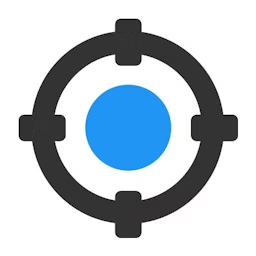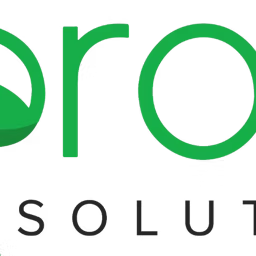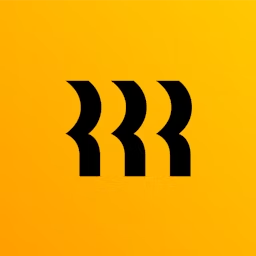Performance management software and talent management software are specialized HR tools that enable organizations to boost employee performance and attract top talent. Both software platforms share the common goal of optimizing workforce capabilities but differ in their approach and functionality.
Performance management focuses on setting individual and team goals, tracking performance, providing feedback, and evaluating employee achievements. Talent management, on the other hand, includes functions related to attracting, developing, and retaining top talent within an organization. Overall, talent management has a broader scope and encompasses performance management within its operations.
This article discusses the similarities and differences between performance management vs talent management software so you can select the right one for your needs. We've also included each category's top five products based on verified software reviews. Read more.

What is performance management software?
Performance management software automates and standardizes the process of evaluating and managing employee performance. It facilitates the performance management cycle, including goal setting, performance reviews, feedback collection, performance improvement planning, and development tracking.
Performance management software increases transparency and fairness in performance evaluations by enabling employee managers to provide timely feedback, set clear expectations, and foster a culture of continuous improvement.
Core features of performance management software
The core features of performance management software include:
Goal setting/tracking: Enables employees and managers to collaboratively define measurable and achievable goals that align with their organization's strategic priorities. The software helps monitor progress toward these goals by providing real-time updates and performance insights to keep employees on track and motivated.
Performance review management: Allows employee managers to regularly evaluate the performance of their team members. This feature includes customizable templates and automated reminders for performance review cycles to simplify the documentation of employee strengths, improvement areas, and feedback.
What is talent management software?
Talent management software helps employers and HR teams manage different aspects of their workforce, including recruitment, performance evaluation, training, and compensation management. It standardizes various stages of talent acquisition and retention—centralizing the candidate database, automating job postings, screening and filtering candidates, managing employee relations, creating individual development plans (IDPs), and planning succession.
Talent management software enhances training initiatives. It ensures employees receive targeted training programs that equip them with the necessary skills and knowledge to excel in their roles. This software often includes features such as skills assessment, learning content management, employee engagement, and training progress tracking.
Core features of talent management software
The core features of talent management software are:
Onboarding: Automates onboarding tasks such as document collection, equipment and asset allocation, training assignment, and compliance checks. This feature saves HR teams time and resources and ensures a standardized onboarding experience for new hires.
Performance management: Provides tools for setting and tracking employee goals, conducting regular performance reviews, and collecting feedback from multiple sources, including managers, peers, and direct reports. This feature helps identify top performers, improvement areas, and development opportunities.
Recruitment management: Standardizes the recruitment process, from job posting and applicant tracking to candidate evaluation and selection. This feature helps HR managers create job requisitions, post vacancies on various platforms, and manage candidate applications.
What are the differences between performance management and talent management software?
Both performance management and talent management software tools aim to enhance employee performance and development within an organization, but they serve distinct purposes and offer certain unique functionality. Here are some differences between the two categories:
Organizational scope: Performance management software focuses on managing and improving individual and team performance within an organization. Its primary goal is to optimize employee productivity, identify improvement areas, and align individual performance with organizational goals. Talent management software, on the other hand, takes a broader approach. Its main objective is to attract, retain, and develop top talent, ensuring the right people are in the right roles and fostering long-term workforce planning and employee retention.
Performance evaluation timeframe: A performance management system focuses on short- to medium-term goals and performance cycles. It facilitates ongoing performance conversations and supports periodic evaluations, typically conducted annually or semiannually. However, talent management software takes a longer-term perspective, considering employees' career trajectories and growth within the organization. It supports strategic workforce planning and talent development over the long haul.
Pricing: The pricing range for performance management software is typically between $2 to $10.99 per user, per month. However, pricing for talent management software generally falls between $3 to $157 per user, per month. The variation in pricing depends on factors such as the vendor, number of employees, performance tracking parameters, and level of customization required.
What are the similarities between performance management and talent management software?
Despite the distinctions, both software categories have some common functionality, including:
Performance reviews: Both software tools facilitate the process of conducting employee performance reviews. Performance management software enables supervisors and managers to set performance goals, track progress, and provide feedback to team members. On the other hand, talent management software incorporates performance reviews as part of a broader talent evaluation process that considers various factors, including skills, competencies, and potential for growth.
Training management: Performance management software identifies skill gaps and training needs based on performance data, helping employees improve overall performance. Similarly, talent management software utilizes training management features to identify developmental opportunities for employees to nurture their skills and abilities.
Reporting/analytics: Performance management software provides insights into individual and team performance metrics, such as project milestones, customer satisfaction score, response time, and defect counts, helping managers make informed decisions about performance improvements. Likewise, talent management software offers comprehensive talent analytics, enabling HR professionals to identify high-potential employees, succession candidates, and overall talent gaps within the organization. These analytics aid in making strategic workforce decisions for the company's growth and success.
Performance management vs. talent management software: Which one is right for your business?
Performance management and talent management tools serve different purposes, and the right choice depends on your business's specific needs and priorities.
If you want to improve individual and team performance or standardize the continuous feedback process, consider performance management software. It facilitates ongoing performance evaluations, goals setting, and progress tracking, fostering a culture of accountability and improvement.
Consider talent management software if you have a broader organizational goal and want to invest in a tool that helps manage the entire talent lifecycle—from recruitment and onboarding to learning and development, succession planning, and talent analytics.
Smaller organizations with straightforward performance evaluation processes may find performance management software sufficient for their needs. On the other hand, larger enterprises with complex talent management requirements, multiple job roles, and diverse career paths may benefit more from the broader functionality offered by talent management software.
Additionally, consider factors such as the scope of your HR needs, budget constraints, and integration requirements to make an informed decision. Evaluate how well each software aligns with your unique HR goals and organizational processes to choose the solution that best supports your workforce development and long-term success.
Once you've decided which software to use, head to our performance management and talent management software category pages to find a list of products and software reviews from verified users.
If you want to narrow your search to only the most popular and highest-rated solutions, check out Capterra Shortlist reports for the top performance management software and talent management software—our reports are based on an analysis of thousands of user reviews.
How to choose between performance management and talent management software
Below are a few things to consider when selecting between performance and talent management solutions.
Identify your organization's HR needs and objectives. As discussed above, performance management solutions focus on helping team managers optimize individual and team performance and provide continuous feedback. However, consider talent management software if your organization requires a more comprehensive approach to managing the entire talent lifecycle.
Consider software scalability and growth. Assess the software's scalability to accommodate your organization's growth trajectory. Performance management tools often excel in handling immediate needs related to performance evaluations and feedback management. However, if your organization anticipates rapid expansion or increased focus on talent development and succession planning, talent management tools offer a more robust foundation for long-term scalability.
Assess reporting/analytical capabilities. Both performance management and talent management software solutions provide reporting tools, but talent management software typically offers standard reports and analytics focused on talent acquisition, learning and development, and overall workforce demographics. On the other hand, performance management software provides advanced reporting tools with more extensive customization options, enabling you to generate detailed reports on individual and team performance, goal progress, feedback trends, and other critical performance-related metrics.
5 top-rated performance management software
These products are listed in alphabetical order. (Check how we selected them.)
To present the most up-to-date information, the product information below shows the latest real-time ratings, which may differ from the ratings values at the time this report's analysis was conducted, since new reviews may have been left in the meantime.
Trial/Free Version
- Free Trial
- Free Version
Device compatibility
Trial/Free Version
- Free Trial
- Free Version
Device compatibility
Trial/Free Version
- Free Trial
- Free Version
Device compatibility
Trial/Free Version
- Free Trial
- Free Version
Device compatibility
Trial/Free Version
- Free Trial
- Free Version
Device compatibility
5 top-rated talent management software
These products are listed in alphabetical order. (Check how we selected them.)
To present the most up-to-date information, the product information below shows the latest real-time ratings, which may differ from the ratings values at the time this report's analysis was conducted, since new reviews may have been left in the meantime.
Trial/Free Version
- Free Trial
- Free Version
Device compatibility
Trial/Free Version
- Free Trial
- Free Version
Device compatibility
Trial/Free Version
- Free Trial
- Free Version
Device compatibility
Trial/Free Version
- Free Trial
- Free Version
Device compatibility
Trial/Free Version
- Free Trial
- Free Version









